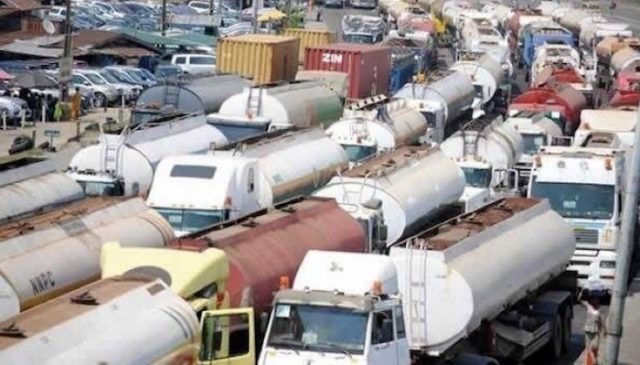Marketers warn against disruption as Dangote plans direct fuel supply
The Nigerian downstream oil and gas sector is currently facing a growing controversy as the Natural Oil and Gas Suppliers Association of Nigeria (NOGASA) and the Petroleum Products Retail Outlet Owners Association of Nigeria (PETROAN) raise alarms over Dangote Refinery’s proposed direct-to-consumer fuel distribution model. These concerns emerge just as petrol prices at private depots surged by over 7%, from N815 per litre on Wednesday to N870 per litre on Thursday.
NOGASA has expressed strong opposition to Dangote Petroleum Refinery’s plan to bypass traditional depots and supply refined petroleum products directly to end-users. The association warns that such a move could lead to widespread disruption, long-term product scarcity, and the collapse of existing retail and logistics networks.
Speaking during NOGASA’s Annual General Meeting in Abuja, National President Bennett Korie urged Dangote to reconsider and engage in further consultations. He warned that Dangote’s vertical integration—handling refining, distribution, and retail—could mirror the failed model previously attempted by the Nigerian National Petroleum Company Limited (NNPCL).
“If existing retail outlets are forced out of business due to this model, it would be extremely difficult to revive the supply chain in the event of any disruption at the refinery,” Korie cautioned.
Korie recalled that Nigeria’s state-owned refineries began to falter after NNPC ventured into retail distribution, stretching operational capacity and undermining efficiency.
“We’re not against Dangote Refinery. In fact, we were among the first to support it. But we believe distributing, refining, and retailing as a single entity is unsustainable,” he said.
“You are blending, refining, and at the same time operating retail outlets. It’s too much. We recommend focusing on refining and selling to marketers who can handle distribution.”
He emphasized that the association is willing to collaborate with Dangote to ensure mutual business success but insisted that the current distribution plan threatens thousands of jobs and over 50,000 filling stations that depend on established supply chains.
Additionally, PETROAN President, Billy Gillis-Harry, warned Nigerians not to celebrate Dangote’s announcement too quickly. He echoed NOGASA’s concerns and highlighted the risks of market monopolization.
“One company wants to refine, stock, distribute, and fix prices. That’s dangerous,” he said, comparing the situation to what occurred in the cement industry—where retail shops and distributors lost influence due to vertically integrated operations by a dominant player.
Gillis-Harry stated that Dangote’s current pricing strategy is already hurting small operators, noting that some outlets are facing N80 per litre losses, threatening their financial sustainability and employee wages.
“Just yesterday, some of them began selling at N817 per litre. That’s a massive loss when multiplied by daily sales volumes. This could mean unpaid salaries and business closures.”
He urged the Nigerian Midstream and Downstream Petroleum Regulatory Authority (NMDPRA) and the Minister of State for Petroleum Resources to urgently enforce market oversight, regulate pricing, and ensure crude oil access for all local refineries to protect jobs and economic balance.
Dangote’s Perspective: Logistics Cost Elimination, Not Monopoly
Meanwhile, a senior official of the Dangote Group, speaking under anonymity, described the backlash from petroleum dealers as “anti-Nigeria,” asserting that the refinery’s distribution strategy aims to eliminate logistics costs and make petrol more affordable.
“Why would anyone want to disrupt fuel supply because a private sector entity wants to remove logistics costs and distribute fuel efficiently?” the official questioned.
According to the Dangote Group, the move is not about controlling the market but about solving critical inefficiencies in Nigeria’s fuel distribution system. The refinery recently acquired 4,000 Compressed Natural Gas (CNG)-powered trucks for nationwide distribution, part of a strategic logistics initiative worth N720 billion, expected to save the Nigerian economy over N1.7 trillion annually.
Set for launch on August 15, this initiative targets large-scale consumers—marketers, manufacturers, telecom operators, aviation companies, and more—by delivering fuel directly from the refinery to their facilities.
Industry experts have praised the move for its potential to reduce distribution costs, promote sustainability, and lift over 42 million Micro, Small, and Medium Enterprises (MSMEs) by lowering energy expenses.
Conclusion: Dialogue or Disruption?
As Nigeria anticipates the official rollout of Dangote’s logistics initiative, key industry stakeholders are calling for balance. While Dangote aims to innovate the supply chain, associations like NOGASA and PETROAN urge caution, collaboration, and regulatory oversight to avoid unintended fallout.
With the downstream sector at a pivotal crossroads, many are watching to see whether the tension will spark much-needed reform or lead to deeper fragmentation in the market. One thing remains clear: the stakes are high, and decisions made now could define the future of Nigeria’s energy economy.














Post Comment